AWS researchers have published a new approach to error correction that could pave the way for a fault-tolerant quantum system.



Amazon Web Services (AWS) is partnering with the Hebrew University of Jerusalem for a new quantum computing initiative as part of the company’s efforts, launched in 2019, to explore this area of research. These include a cloud-based quantum computing service Amazon Braket to accelerate research and discovery, the Amazon Quantum Solutions Lab to help businesses explore quantum applications, and the AWS Center for Quantum Computing research and development organization.
AWS’ latest collaboration with Hebrew University will fund a team of researchers from the academic institution’s Quantum Information Science Center (QISC), founded in 2013, and the Racah Institute of Physics to advance the understanding of quantum gates – fundamental building blocks of quantum computers, the parties said in a statement on Monday. The collaboration is the first between AWS and any Israeli academic institution in the field.
The university’s Professor Alex Retzker, a researcher of quantum technologies, will lead the research group as part of his role as a Principal Research Scientist at AWS.
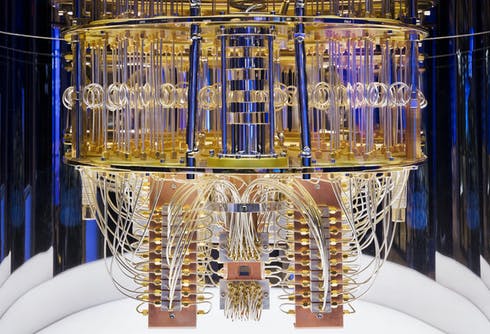
Yesterday Nvidia officially dipped a toe into quantum computing with the launch of cuQuantum SDK, a development platform for simulating quantum circuits on GPU-accelerated systems. As Nvidia CEO Jensen Huang emphasized in his keynote, Nvidia doesn’t plan to build quantum computers, but thinks GPU-accelerated platforms are the best systems for quantum circuit and algorithm development and testing.
As a proof point, Nvidia reported it collaborated with Caltech to develop “a state-of-the-art quantum circuit simulator with cuQuantum running on NVIDIA A100 Tensor Core GPUs. It generated a sample from a full-circuit simulation of the Google Sycamore circuit in 9.3 minutes on Selene, a task that 18 months ago experts thought would take days using millions of CPU cores.”

Majorana modes are, however, notoriously elusive. In part, this is because it is hard to create the conditions required to generate them in an experimental setting. Many theoretical proposals have predicted MZMs should be present in quasi-2D materials, which consist of a small number of 2D layers stacked on top of each other. However, all previous proposals required heterostructures – that is, structures where the stacked layers have differing material composition and structure. Practically, these heterostructures are difficult if not downright impossible to grow.
To make matters worse, Majorana modes can only be observed indirectly. Like detectives trying to catch a culprit with only circumstantial evidence, physicists have a hard time ruling out alternative explanations for the phenomena they observe. This has led to high-profile premature claims of Majorana discovery, including Microsoft Quantum Lab’s recent retraction of a Nature paper in which they purported to observe MZMs in nanowires.
In their new work, Zhang and his coauthor show that Majorana modes should be present in a much simpler setting: thin films of an iron-based superconducting material. Like previous proposals, the system they study is quasi-2D, but crucially all layers are of the same kind. The iron-based thin films naturally accommodate Majorana fermions that are helical – left or right-handed – and move along the edges of the system in their preferred direction. This is due to a special “time-reversal” symmetry, wherein interchanging the left-moving and right-moving quasiparticles makes it look like time is propagating backwards in the system.
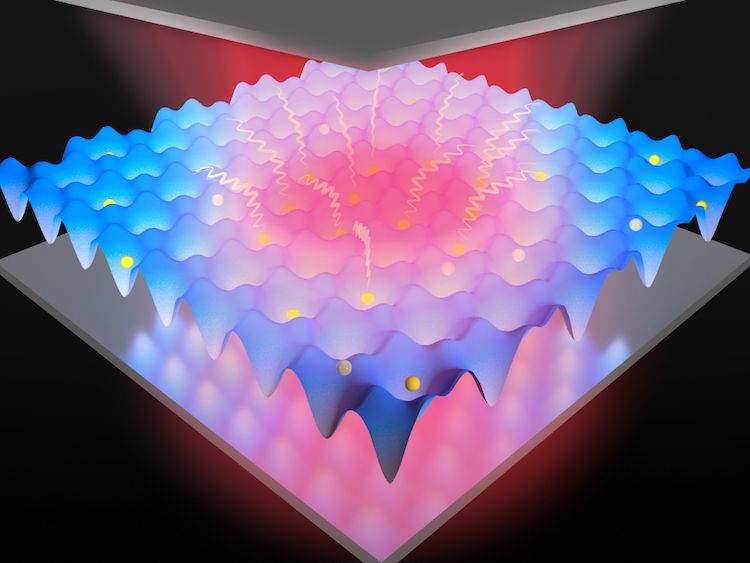
Physics World
Interactions between matter and light in microcavities made of mirrors are fundamentally important for many modern technologies, including lasers. Researchers at the University of Michigan, Ann Arbor, US, have now gained tighter control of these interactions by exploiting a nonlinear effect that occurs in a new kind of hybrid semiconductor made from bilayers of two-dimensional materials. These semiconducting sheets form an egg-carton-like array in which the “pockets” are quantum dots that can be controlled using light, and they could be used to make ultralow-energy switches.
Led by Hui Deng, the researchers made their hybrid semiconductor from flakes of tungsten disulphide (WS2) and molybdenum diselenide (MoSe2) just a few atoms thick. In their bulk form, these transition-metal dichalcogenides (TMDCs) act as indirect band-gap semiconductors. When scaled down to a monolayer thickness, however, they behave as direct band-gap semiconductors, capable of efficiently absorbing and emitting light.
When laid on top of one another, the electronic structures of TMDCs can form a larger electron lattice (known as a moiré lattice) thanks to the slight mismatch of the materials’ lattice constants. The period of this lattice can be tuned by twisting the monolayers with respect to each other at different angles. In the WS2 and MoSe2 bilayer studied in this work, this angle is about 56.5° and the moiré lattice produced contains “pockets” measuring around 10 atoms across. These pockets, explains study lead author Long Zhang, are the quantum dots – tiny pieces of semiconducting materials that can isolate individual quantum particles such as electrons.

Words categorize the semantic fields they refer to in ways that maximize communication accuracy while minimizing complexity. Recent studies have shown that human languages are optimally balanced between accuracy and complexity. For example, many languages have a word that denotes the color red, but no language has individual words to distinguish ten different shades of the color. These additional words would complicate the vocabulary and rarely would they be useful to achieve precise communication.
A study published on 23 March in the journal Proceedings of the National Academy of Sciences analyzed how artificial neural networks develop spontaneous systems to name colors. A study by Marco Baroni, ICREA research professor at the UPF Department of Translation and Language Sciences (DTCL), conducted with members of Facebook AI Research (France).
For this study, the researchers formed two artificial neural networks trained with two generic deep learning methods. As Baroni explains: “we made the networks play a color-naming game in which they had to communicate about color chips from a continuous color space. We did not limit the “language” they could use, however, when they learned to play the game successfully, we observed the color-naming terms these artificial neural networks had developed spontaneously.”
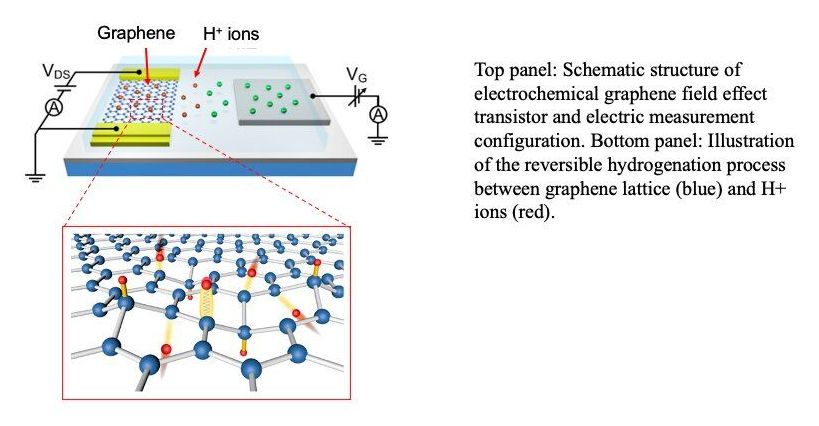
Over the past decade or so, the semimetal graphene has attracted substantial interest among electronics engineers due to its many advantageous qualities and characteristics. In fact, its high electron mobility, flexibility and stability make it particularly desirable for the development of next-generation electronics.
Despite its advantageous properties, large-area graphene has a zero bandgap (i.e., the energy range in solid materials at which no electronic states can exist). This means that electric current in graphene cannot be completely shut off. This characteristic makes it unsuitable for the development of many electronic devices.
Researchers at Tsinghua University in China recently devised a design strategy that could be used to attain a larger bandgap in graphene. This strategy, introduced in a paper published in Nature Electronics, entails the use of an electric field to control conductor-to-insulator transitions in microscale graphene.
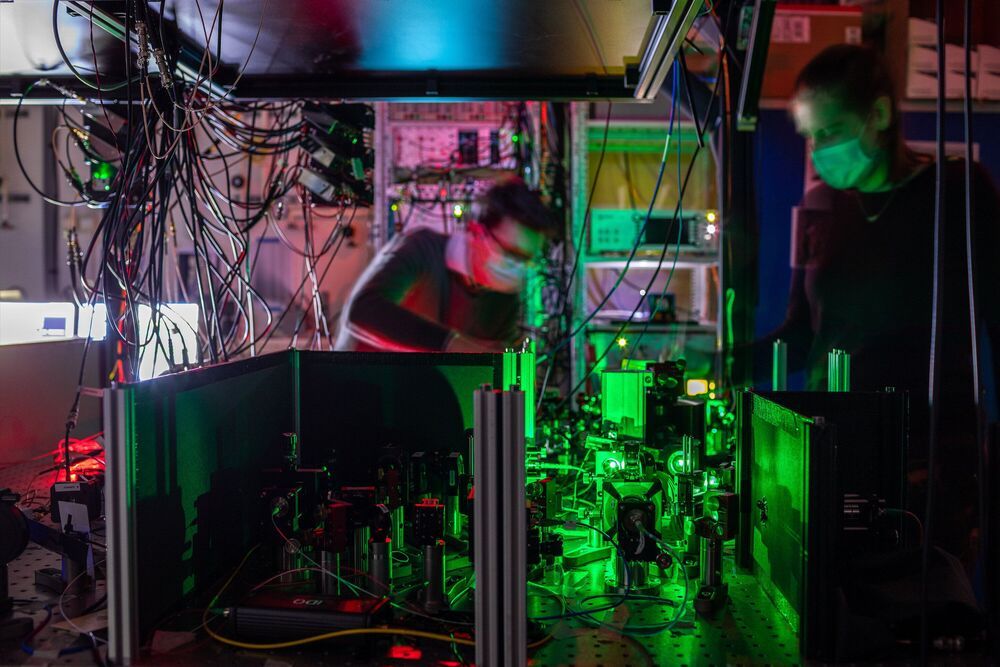
A team of researchers from QuTech in the Netherlands reports realization of the first multi-node quantum network, connecting three quantum processors. In addition, they achieved a proof-of-principle demonstration of key quantum network protocols. Their findings mark an important milestone toward the future quantum internet and have now been published in Science.
The power of the internet is that it allows any two computers on Earth to connect. Today, researchers in many labs around the world are working toward first versions of a quantum internet—a network that can connect any two quantum devices, such as quantum computers or sensors, over large distances. Whereas today’s internet distributes information in bits that can be either 0 or 1, a future quantum internet will make use of quantum bits that can be 0 and 1 at the same time.
“A quantum internet will open up a range of novel applications, from unhackable communication and cloud computing with complete user privacy to high-precision time-keeping,” says Matteo Pompili, Ph.D. student and a member of the research team. “And like with the internet 40 years ago, there are probably many applications we cannot foresee right now.”

A new generation of miniature recording probes can track the same neurons inside tiny mouse brains over weeks—and even months.
The new tools build on the success of the original Neuropixels probes released in 2017 and currently used in more than 400 labs. Neuropixels 2.0 are much smaller—about a third the size of their predecessors. They’re designed to record the electrical activity from more individual neurons and have the unique ability to track this activity over extended time periods. That makes them especially useful for studying long-term phenomena like learning and memory in small animals such as mice, says Tim Harris, a senior fellow at HHMI’s Janelia Research Campus who led the project. Harris and his colleagues describe the advance in a paper published online April 15 in the journal Science.
Neuropixels 2.0’s advances come from several key innovations, Harris says. Janelia scientists and engineers developed new ways to process the data. Strategic changes to the layout of the probes helped make them better suited to certain tasks. And engineers at imec, the non-profit nanoelectronics center that manufactures the probes, used imec’s proprietary technology to design, develop, and fabricate the probe.
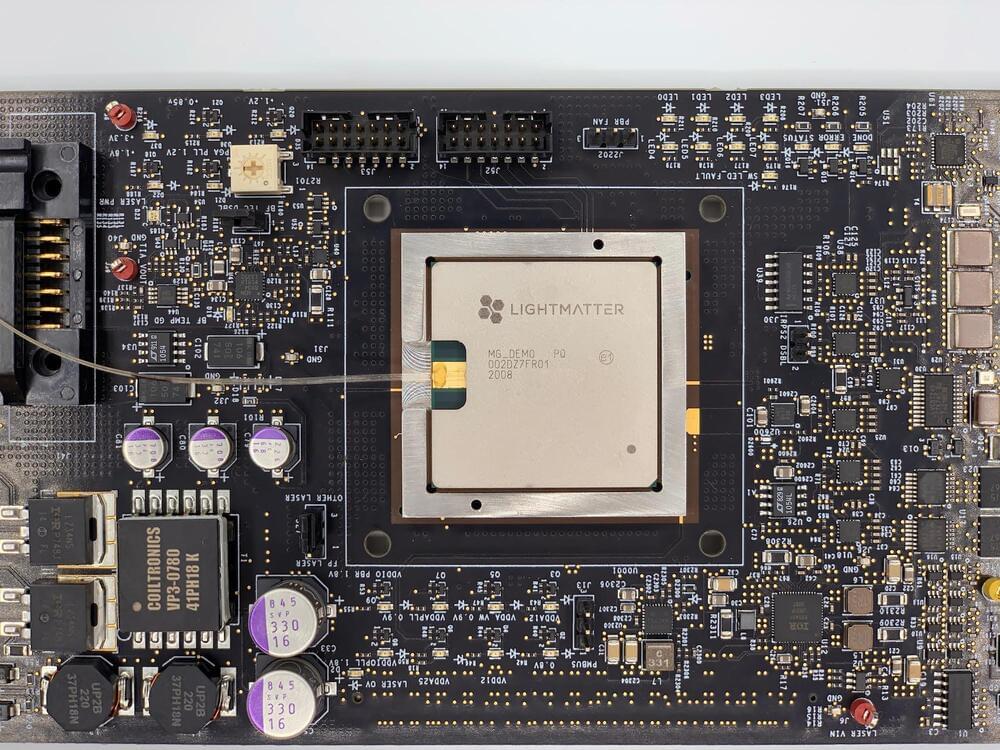
The Lightmatter photonic computer is 10 times faster than the fastest NVIDIA artificial intelligence GPU while using far less energy. And it has a runway for boosting that massive advantage by a factor of 100, according to CEO Nicholas Harris.
In the process, it may just restart a moribund Moore’s Law.
Or completely blow it up.